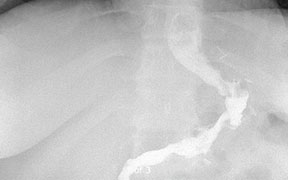Clear Liquid Diet
Typically will last 2-3 days post-operatively and consists of thin clear liquids and soup broths.
Dr. Alami is a firm believer in the multidisciplinary approach to bariatric surgery. As such, his unit at AUBMC offers all the necessary services under one roof. The team consists of the clinic assistant, clinic coordinator, nurse and multiple specialists all centered around the care and needs of patients undergoing or considering bariatric surgery.
Upon assessing the patient’s eligibility for surgery, Dr. Alami will aid the patient in the decision regarding the best surgical approach and ensure that the patient has unlimited access to a specialized dietician. The patients will typically meet with the dietician for a preoperative visit and then on every visit for at least 3 months post-operatively. Some patients will opt to have more visits with the dietitian prior to committing to surgery or will want to lose weight before surgery to make the operation easier. These approaches are welcomed and encouraged.
A specialized psychologist is also available for those patients who may need psychological assessment or counseling with pre as well as postoperatively. Moreover, through the Metabolic an Bariatric Surgery Unit at AUBMC, patients have continuous access to the above specialists as well as our medical endocrinologist, weight loss specialists and physical therapists.
The average length of stay for patients undergoing weight loss surgery is around 36 hours. Most patients spend only one night in the hospital and are safe to be discharged the next day. Typically patients will be on their feet and walking within 6 hours of surgery and will be started on sips of fluids at that time. on the first post operative day, patients are given a clear liquid diet. If the patient tolerates the liquid diet well, they are typically disgorged in the afternoon on the day after surgery. Some patients prefer to stay an extra night to ensure that they are drinking enough fluids.
When patients meet with the dietician before surgery, they will be given instructions on what to expect in the first few weeks after surgery. These instructions will be re-stressed while the patient is in hospital. The dietician will visit on the first post-operative day and go over the first stages of the post-operative diet which are divided as below:
Typically will last 2-3 days post-operatively and consists of thin clear liquids and soup broths.
This is stated on postoperative day 2-3 after surgery and includes all the components of Stage 1 along with thicker liquids and soups plus protein shakes. This stage will last 10-14 days.
When patients come in for their postoperative visit around 2 weeks after surgery, they will typically meet with the dietitian as well as Dr. Alami and will start on this stage of the diet. This stage includes all the components of Stage 2 plus mashed food that is typically high in protein. The aim of this stage is to get patients used to the consistency that they need to chew their food to before swallowing. As such, this stage is limited to only 2-3 days before moving on to the next stage of the diet.
At this point, patients are typically ready to start on a high protein diet. Since portions are very limited, the stress is on getting protein rich foods into the body and supplementing with easy to chew foods such as boiled and steamed vegetables. This stage typically lasts about 4-6 weeks and patients will be given guidance as to how they can experiment and add more variety to their foods. As such by six weeks postoperatively, patients can start eating raw vegetables and salads and will be ready to progress tot he next stage.
By 2 months after surgery, most foods will be well tolerated. At this point, patients are encouraged to experiment with all food types with guidance as to which foods are expected to be easier than others.
Patients who undergo weight loss surgery procedures are Dr. Alami’s patients for life. Unlike other operations whereby the follow up is limited to the immediate post-operative period, Dr. Alami follows his patients for as long as they are willing to come and see him. The scheduled follow up is:

Typically 10-14 days after surgery. The aim is to check on how the healing process is going. X-rays may be obtained for Sleeve Gastrectomy patients. typically, this is when vitamin supplementation is also started. The patient will also meet with the dietitian during this appointment.

This visit is mostly about making sure that the patient is adapting well to the diet plan, that weight loss is appropriate and that patients have started exercising. The patient will also meet with the dietitian during this appointment.

At this point, most patients have adjusted well to their diets and can eat very comfortably. The aim of this visit is to ensure that weight loss is on track, patients are exercising properly, medications are adjusted based on improvement in medical problems that are already noticeable by this time and that necessary lifestyle modifications are underway. At this point, acid reducing medications are typically stopped and blood tests are ordered to look at certain vitamin levels and metabolic conditions. The patient will also meet with the dietitian during this appointment.

By this time, most patients are able to eat everything they want to eat in controlled portions. Weight loss is excellent and starting to plateau and significant improvements are noticeable in terms of overall health. The focus of this visit is to check a wide panel of laboratory tests to make sure there are no deficiencies in vitamins or minerals and either reduce or adjust the supplementation regimen. The patient will have the option to meet with the dietician if they wish during this visit.

The focus during these visits is to ensure that patients have adjusted well to their new lifestyles, that they continue to maintain their weight loss and that they do not have any deficiencies that need to be addressed. A full panel of laboratory tests will again be ordered during this visit. The patient will have the option to meet with the dietician if they wish during this visit.
The above is the fixed/ scheduled follow up plan. Of course, patients are encouraged to follow up more closely if they feel the need or if they have pressing issues that need to be addressed.
Dr. Alami has been focused on Metabolic and Bariatric Surgery since 2004. To date, he has performed thousands of cases under the safest conditions and with no mortalities, both in the USA and Lebanon. The key to success is the individualized, multidisciplinary, specialized care that patients have come to experience and expect from Dr. Alami. Naturally, no two patients are alike and specific risks of each operation as they pertain to each patient will be thoroughly covered during the different visits with Dr Alami. That is the basis on which Dr. Alami is certified as a Fellow of the American Society of Metabolic and Bariatric Surgery and a Surgeon of Excellence by the Surgical Review Corporation. Both of these designations are based on volume of cases performed and safety record of the surgeon and are conferred by the American Society of Metabolic and Bariatric Surgery and the American College of Surgeons jointly.